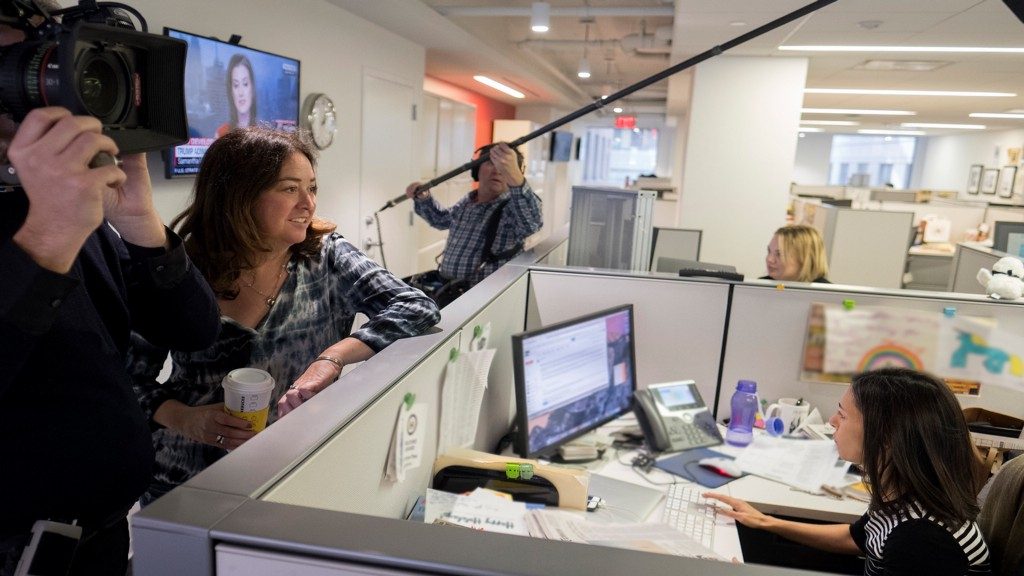Liz Garbus is an Emmy and Peabody award-winning filmmaker whose film “What Happened, Miss Simone?” opened the 2015 Sundance Film Festival, received a Peabody Award, and was nominated for an Oscar. Her other films include “The Farm: Angola, USA,” “Girlhood,” and “Bobby Fischer Against the World.”
“The Fourth Estate” will close the 2018 Tribeca Film Festival on April 28.
W&H: Describe the film for us in your own words.
LG: “The Fourth Estate” is a vérité film taking you inside The New York Times for the first year of the Trump presidency, pulling back the curtain on how the most important newspaper in the world would fight for the people’s right to know the truth in the era of “fake news” and “alternative facts.”
W&H: What drew you to this story?
LG: After Donald Trump’s win, I knew I wanted to engage with this changed political landscape, but I didn’t know how right away. Two weeks after the election, Trump tweeted about a meeting at The New York Times, at first saying he was canceling under false pretenses, and then agreeing to go in.
As I was watching that unfold on Twitter, I thought, “What if I could be a fly on the wall? How would journalists respond and cover this erratic and relentless news cycle, confronting lies and norm-busting practices at every turn?”
W&H: What do you want people to think about when they are leaving the theater?
LG: How hard this job is. The pressure to compete, to be first, but more importantly, to be right. How to not become numb and maintain your rigor in the face of the onslaught of news. How important the press is to a healthy democracy.
W&H: What was the biggest challenge in making the film?
LG: The relentlessness and unpredictability of the news cycle. Dealing with sensitive issues and sources.
W&H: How did you get your film funded? Share some insights into how you got the film made.
LG: The film is part of a multi-part film series supported by Showtime, Impact Parters, and a coalition of foreign broadcasters including BBC and ARTE.
W&H: What does it mean for you to have your film play at Tribeca Film Festival?
LG: Being closing night film at Tribeca for a film about The New York Times is a dream!
W&H: Name your favorite woman-directed film and why.
LG: My favorite films change depending on what I need in my life. For today I am going to say Amy Heckerling’s “Fast Times at Ridgemont High.”
W&H: Hollywood and the global film industry are in the midst of undergoing a major transformation. Many women — and some men — in the industry are speaking publicly about their experiences being assaulted and harassed. What are your thoughts on the #TimesUp movement and the push for equality in the film business?
LG: It’s not about sex, it’s about power. And abuse of power against women takes many forms — from the most violent, rape — to the mundane, mansplaining. It’s affecting us on all levels. I’ve been doing this for a little while, and I already am experiencing a change in tone and an increased awareness among male colleagues.






